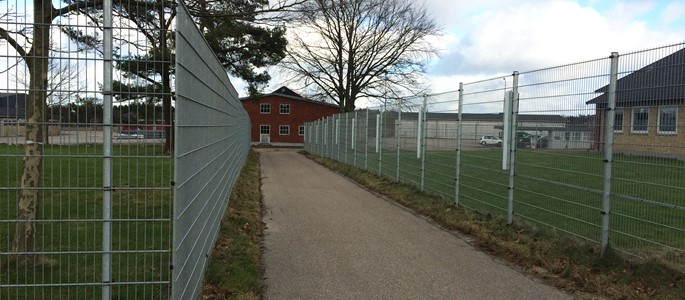New research report on Danish deportation camps
“Stop Killing Us Slowly” is an imperative critique of both conditions and purpose of the camps
Since the deportation camps Sjælsmark and Kærshovedgård were opened in 2015 and 2016, they have been subject of much debate in the media. Conditions in the camps are deliberately as unpleasant as possible, and several experts describe them as open prisons – with worse conditions than inmates in the real open prisons have, and without time limits.
Quite foreseeably, they have also proved not to serve their purpose: to push more people to go back voluntarily after having their asylum application turned down. On the contrary, the camps have produced almost 3,000 “disappeared” people, most of whom are probably living without residence permits elsewhere in Europe. The number of residents who have had their asylum cases reopened and changed exceeds by far the number of deported. Asylum is not an exact science, and the Refugee Appeals Board makes mistakes.
Through quotations from interviews, the residents express sharp and intelligent thoughts on the situation, society has placed them in. For instance Issa, who lived two years in Sjælsmark:
”As a normal person, you choose to do things and when to do them. You can eat when you want to, work out when you want to, decide how to live your life. In the camps we are deprived of all choices. And you can’t make any plans for your life.”
Especially the feeling of criminalization, isolation and lack of self-determination are things that make it intolerable to stay in the camps.
The report is written by Freedom of Movement Research Collective, consisting of Julia Suarez-Krabbe (RUC), Annika Lindberg (Bern University) and José Arce-Bayona (Aalborg University). The authors have an academic research angle to the topic, but they are not afraid of directing a hard critique towards the whole mind set behind the camps and the consequences they have for both inhabitants and society.
As mentioned in the report, the issue of deportation hindrances or the “legally stranded” rejected asylum seekers was first time described by this signature in the report ‘Asylum Camp Limbo’ from 2011. Already back then it was obvious that people in this situation are afraid, and it’s not possible to push them to go back “voluntarily” by deliberately making their living conditions bad. The situation has only become worse since then, and on top of the rejected asylum seekers there are also a rising number of people on Tolerated Stay living in Kærshovedgård. They have the Danish state’s word that their life will be in danger if they return – which makes it even more absurd to put deliberate pressure on them.
The report clearly proves that the regime has only negative and unacceptable effects, but does not discuss alternative solutions for rejected asylum seekers. A number of things could be mentioned such as positive incitements in the form of economical and social support on return, a clearer definition of ‘collaboration’ could bring Art. 9c(1) back on track and give residence permit based on deportation hindrances (has not been used since 2012), children’s attachment to Denmark through growing up in the asylum system should lead to a residence permit at some point, and rejected asylum seekers could be permitted to apply for family reunification and study- or work permits. As a whole, these options would take care of most cases.
The report is easy to read in spite of the heavy and complex topic, and on only 50 small pages the legal, practical and ethical aspects of the camps are described.
Download it here, in English or Danish.
Contact the authors:
Annika Lindberg: annika.lindberg(at)soz.unibe.ch
Julia Suarez-Krabbe: jskrabbe(at)ruc.dk


